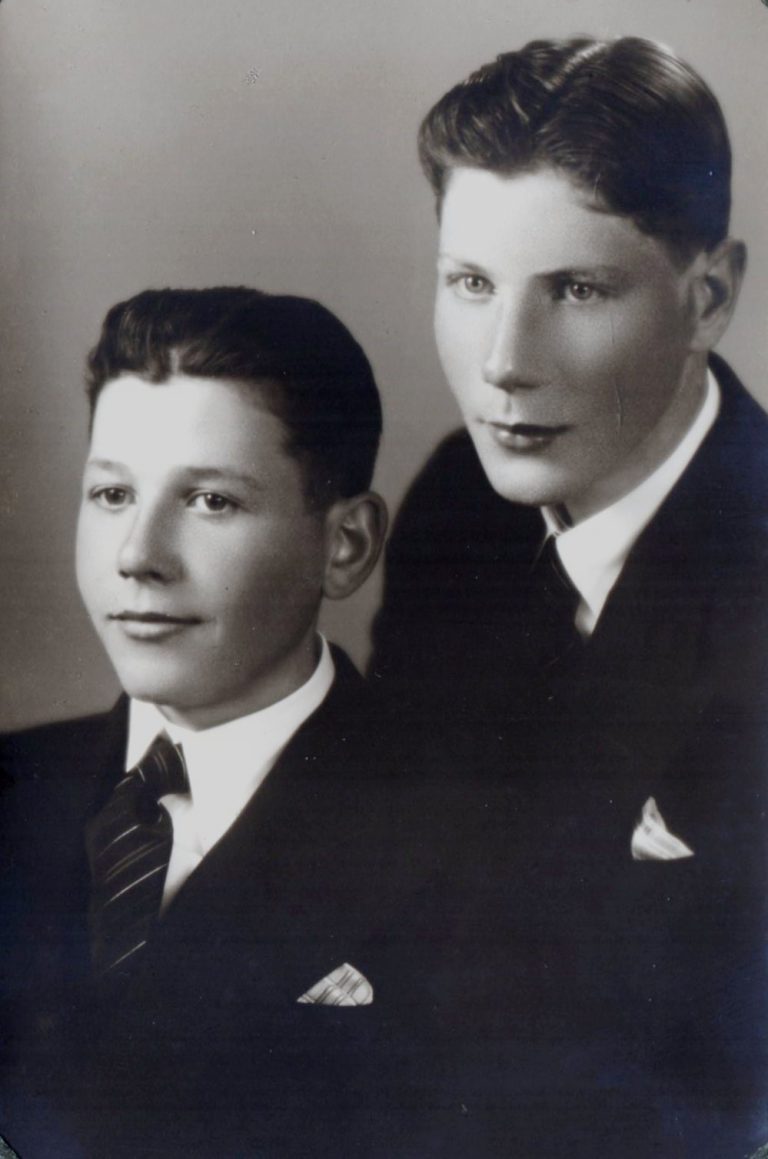As already told in the Eetu’s story in my previous blog, the most shocking event for the boys and the whole family was Elina mother’s passing away in February 1927. At that time Kalevi was five and Erkki was barely three years old. Sister Lilja was the oldest of the children and at that point of time 10 years old. Father
Edvard suddenly became a single parent of three children. He asked help for childcare from Alestalo farm. Help was not found in the farm, but instead a neighbor and a family with a long common history in Sarva offered the help. However, brothers under these circumstances proved to be overwhelming soon. The sons who just had lost their mother undoubtedly were not the easiest to take care of. Somehow Eetu survived the daily challenges. The oldest sister Lilja was a good help.
In summer, the solution was to send the brothers to farms often to Swedish-speaking communities such as Mustio or Siuntio to “learn Swedish”. Placements were made on the recommendation of the social welfare authorities, then called Child Care Board. Instead of summer vacation resorts, these places today could be easily described as penal colonies.
The first farm was in Siuntio. After the end of the spring semester, the brothers left to Siuntio at the beginning of summer 1929 when Erkki was five and Kalevi seven. Eetu took the boys by bus to Siuntio and took them to the farmhouse which also included a master of the farm, hostess, maid and a hired man.
The house was not by the lake, but the lake was visible from the house. On their first day there, the boys absolutely adored all the animals of the house and were extremely excited about the new environment. There were small calves, cows and bulls. As a huge pleasure for the brothers they were given a chance to pet a little calf in the yard. Everything seemed so idyllic and exquisite.
Then the next morning started the work. And immediately brothers faced a shocking and disturbing surprise. The farm turned out to be the neighbourhood´s main slaughterhouse and boys task was to assist in that. First in the line was the calf they had been petting the day before.
In addition to that their task was to do all other usual farm duties at the fields. Working started always at 7:00 am and continued until 7:00 pm. Each day started by taking cows to the grazing ground and after that finally having a small breakfast. At 12 o’clock was lunch, which most often was a black pudding. Their eating was organised so that they had to stand while they had their meal, but the people of the farm were sitting in the table comfortably – how convenient indeed.
It didnt help their work at the fields as they had no shoes – all work was done barefooted. Nobody cared that the boys feet were bleeding and at least once Erkki was threatened by blood poisoning symptoms – luckily the dog of the farm was licking up his wounds and story tells that this possibly cured the wounds.
The boys were sleeping on the window porch. There were no mattresses instead, they slept on thin covers.
The brothers could not swim a single time during all summer, even though they could see the lake from the house. Obviously, washing was not frequent even though the house had a sauna of their own. The very last night, the maid brought the brothers to the big tub in the yard and washed them both with a brush.
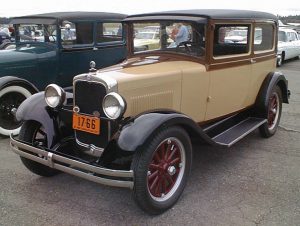
In the morning, the host brought the brothers back to Helsinki in a stunning car (Studebaker-28) and left them in the Market square. The summer was over and the schools were to start the next day. Every year the family had changed their home address and the boys did not know where they lived this time. They headed their way to (Kallio quarter in Helsinki) the corner of Kolmas linja and Siltasaari, where lived Eetu´s sister Hilja and her husband Nestori Eloranta. They knew the right address on Hernesaari Street, where they lived this time. Barefoot boys walked practically across Helsinki. Even the Eloranta family did not realize to give money for the tram.
A new stepmother became officially into the family in July 1930, when Eetu and Martta got married.
In the summer of 1930, the brothers came to the Vääksy summer camp through the school. It was the best summer ever. No work, but a bit of teaching and playing on the lake and on the beach. The brothers were allowed to perform on stage and they were singing with their backs to the audience, because they were so shy.
The year 1932 was fateful for the brothers, as was already mentioned in the story of Eetu. Lilja sister died at the age of 14 for blood poisoning.
Kalevi was in Mustio in 1935 and the following two summers brothers were in Mustio, in Vikström´s farm, where there was no work at first, but the boys had a boring time and they asked for something to do. There was no shortage work after that. The hostess said that she originally had got the idea of having children in the summer after seeing a couple of boys in the field 1929 in Siuntio. That is, they were exactly the same boys who were then in Siuntio.
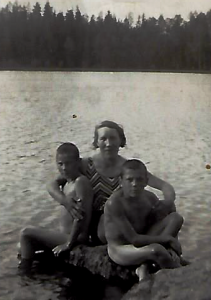
Mustio was a fairly good place. The brothers could also swim. Hostess Thyra Vikström, Erkki and Kalevi in the picture in 1933.
Kalevi was in Bellby. Erkki visited there again after 60 years and believe it or not, still the guy recognized him even though he had only seen him twice – thats what we call leaving an impression. Erkki was in Bellärby in 1937.
Kalevi was fifteen-year-old in the winter of 1937 in Mustio. He was missing very much his brother and family in town and sent a few letters and asked if he could come home.
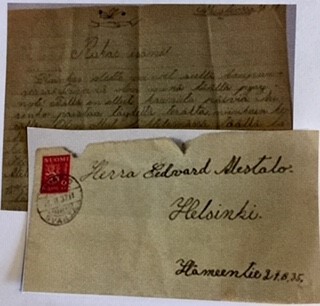
After moving to Tammelund, the boys first went to school in Kallio and the trip was made either by running or by bike. The bridge fee for the Kulosaari wooden bridge was 50 pence and as soon as the ice ran, it was crossed over the ice, as Eetu did not put money in the vanities.
There were no further classes at all, so the brothers only attended 6 classes of elementary school.
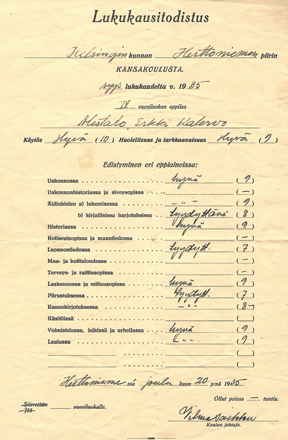
Erkki´s school certificate for the autumn semester 1935 from Herttoniemi school
Erkki’s school obligation ended already at the age of 12. In 1935, Erkki applied for a job at the Mars Express Office, but the age should have been over 14. However, he was sent to the head office. Often, the job was, for example to take people’s linen to the pawnshop. People were too shy to take their bed linen by themselves, so they used Mars´es services.
The Brothers were real cinema lovers. In the house where they lived in Kallio there was a cinema theatre called Kuva-Pirtti owned by Martta’s relatives, Viljanen. The brothers had permission to go into the engine room of the cinema and watch movies. Sometimes they could watch even five movies in a row a day. The Marx-brothers were one of the favorites.
Kalevi started his work at Herman Lindell as a messenger boy in summer 1937 and received his first pay packet of $ 300. The brothers celebrated the pay day by eating a meal and maybe they even went to the movies. When Eetu realized this, he gave the boys especially Kalevi, a really hard time. The anger came from the frustration that the boys had went to eat with the money they had earned! They were supposed to hand over the earned funds fully to their old man instead. Something which may sound quite interesting in todays world.
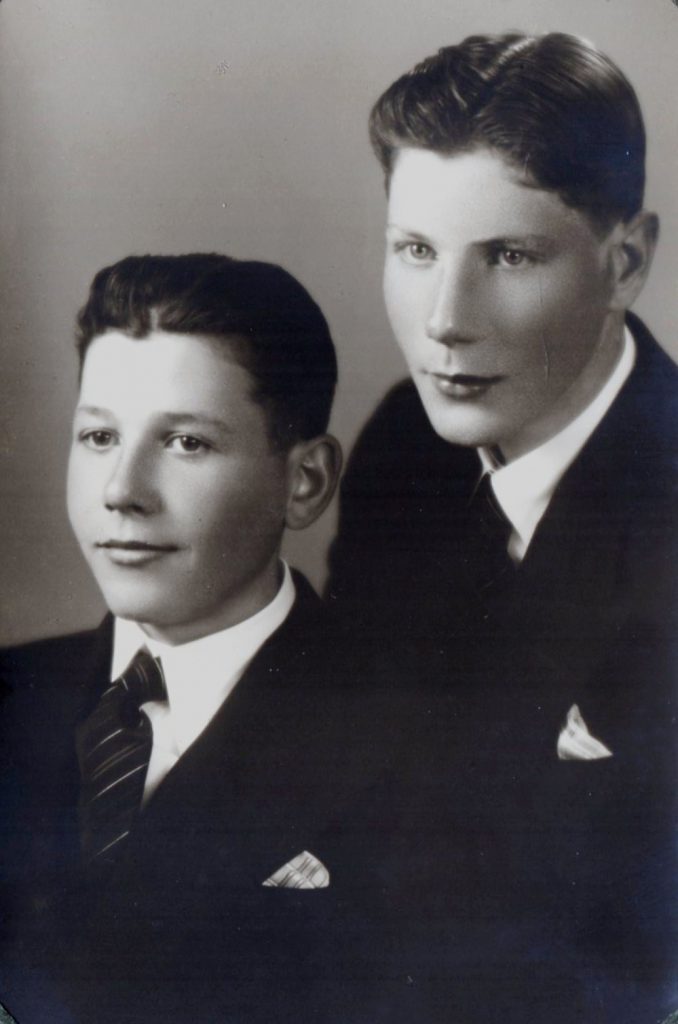
The brothers were confirmed at the same time in St. John´s Church 11.5.1941 (Korkeavuorenkatu 12). The confessor priest was Pastor Hannu Pietilä from the Southern Finnish Church of Helsinki.
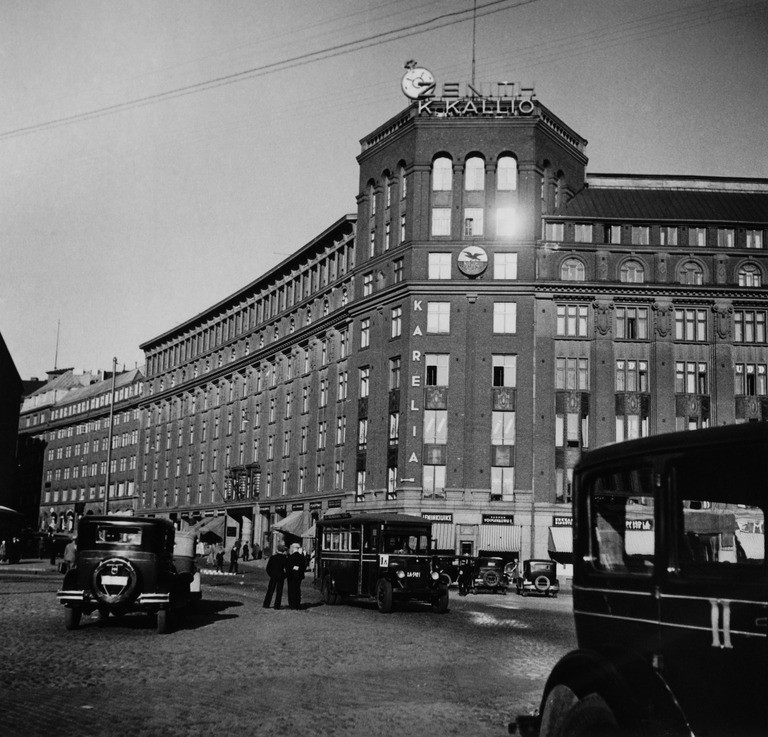
Erkki worked in Hotel Karelia (beside the Railway station) 1.11.1937-1941 as a doorman.
He served in the air defense groups about 4 months from July 1941 to November 1941. From there he went back to Hotel Karelia in order to go to a driving school (or finance it as Eetu had no money to give, even though all the money had so far been given home as mentioned earlier).
Erkki got a job in a auto repair shop in Kinaporinkatu by a sergeant. The commuting was made by running from Tammelund. Then family Viljanen informed the brothers, that both of them had a job right after Christmas, earning 3,000 FIM for 3-4 months. The brothers went to the evening school (Kulmakoulu) at the same time. Kalevi had to quit the school when inflation ate all their salary. Erkki went to work in the buildings only to get a heavy worker´s card. Kalevi took job via Eetu in the streets of the city for the same reason.
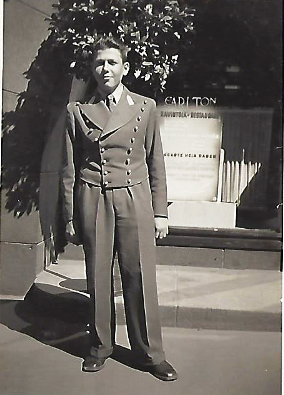
Kalevi was a bellboy at the Carlton hotel on March 23 1940, to June 30, 1941 (resigning due to departure for war). Partly at the same time, he served in civil guard in air surveillance troops 17.6.1941-25.9.1941.

In 1942, before Erkki had to go to the front, he got a driving task (25,000 mk) from Kärkölä. The cargo was firewood for a sauna on Kolmas Linja in Helsinki (Kallio). Erkki’s share was FIM 1,500 as he drove, others received FIM 1,000. (5 FIM per cubic meter of firewood extra for each).
The Russians took later over Hotel Karelia, the messenger came home and ordered to discard all papers and photographs. The Soviet Commission for Security was at the hotel in 1946-52.
